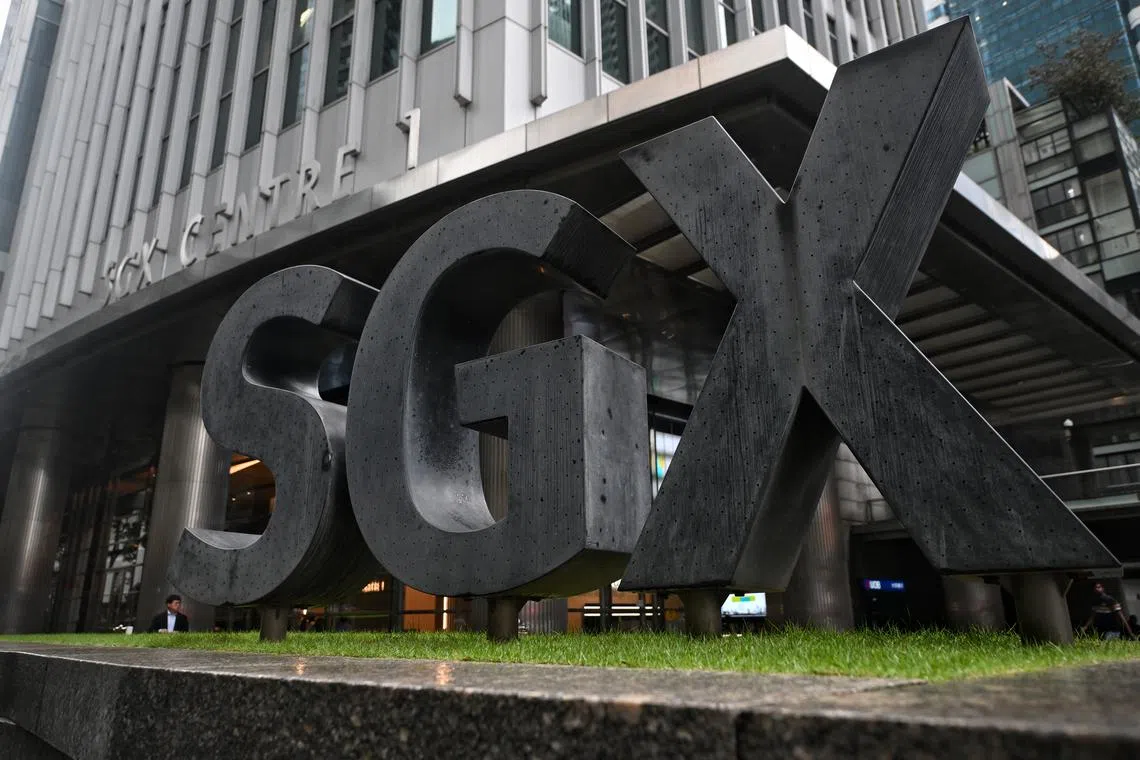Strong showing by Singapore stocks amid global market rally
Sign up now: Get ST's newsletters delivered to your inbox

The benchmark STI finished the trading day with a gain of 1 per cent at 3,199.07.
PHOTO: ST FILE
Uma Devi
Follow topic:
SINGAPORE - Singapore shares closed on Tuesday with a solid rally, as investors around the world took to equity markets with renewed optimism after the initial shocks of the Israel-Hamas conflict.
The benchmark Straits Times Index finished the trading day with a gain of 1 per cent or 32.56 points at 3,199.07. Across the broader market, advancers outpaced decliners 369 to 227. Daily turnover came in at 1.1 billion securities worth $809.7 million.
Looking ahead, Saxo market strategist Charu Chanana said Federal Reserve members are turning “less hawkish”. The focus of markets is also shifting to inflation data this week, which could continue to fuel the higher-for-longer narrative, she said.
“After jobs and geopolitics, focus may also be turning to US inflation numbers due this week. Bear steepening of the yield curve in the recent weeks suggests that markets are still more concerned about inflation remaining high in the long run than the risk of a recession in the near term,” she added.
Most markets in Asia ended the day in the black, taking their cue from a rebound on Wall Street. The Hang Seng Index in Hong Kong rose 0.8 per cent, Japan’s Nikkei 225 was up 2.4 per cent, and the FTSE Bursa Malaysia KLCI advanced 1.3 per cent. South Korea’s Kospi, however, lost 0.3 per cent.
On the local bourse, DBS Bank was the top gainer – up 1.2 per cent or $0.39 at $33.97. The other two lenders were also among the biggest gainers for the day. UOB rose 1 per cent or $0.29 to $28.56, while OCBC Bank gained 0.9 per cent or $0.12 to $13.
Nio was the biggest loser for the day, shedding 1.05 per cent or US$0.09 to US$8.49. Venture Corporation was another notable decliner, falling 0.6 per cent or $0.07 to $12.27.
Seatrium, Thai Beverage and Rex International were the most heavily traded counters for the day. THE BUSINESS TIMES

